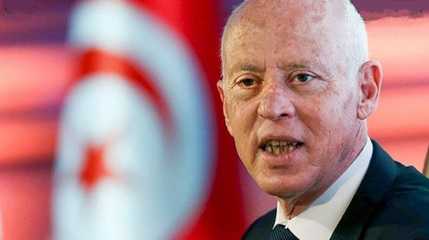
10 May 2022; MEMO: The Tunisian presidency announced yesterday the appointment of new members to the Independent High Authority for Elections Council.
The presidential order stipulated that the council be chaired by Farouk Bouaskar, a former member of the council, and appointed the members Sami Bin Salama, Mohamed Al-Tilili Mansouri, Al-Habib Al-Rubai (a judicial judge), Maher Al-Jadidi (administrative judge), Mahmoud Al-Waer (financial judge), and Mohamed Nofal Al-Farikha (an engineer specialised in the field of information systems and safety).
On 22 April, President Kais Saied issued a decree to replace the members of the Independent High Authority for Elections with seven new members appointed by him.
The Independent High Authority for Elections is a constitutional body that has supervised the elections since October 2011. Previously it consisted of nine independent, neutral and qualified members who were elected by a two-thirds majority in Parliament. They served for one six-year term. One-third of its members were replaced every two years.
The authority was one of the last independent bodies in Tunisia, but the former head of the electoral commission in Tunisia, Nabil Baffoun, said that "the commission is no longer independent after the president's decree to replace its members."
"It has become clear that it is the president's authority," he added.
Several political forces, including the Ennahda movement and the Workers' Party, rejected the decree to amend the electoral commission, considering that it comes in the context of "establishing individual rule."
Saied has held nearly total power since 25 July when he sacked the prime minister, suspended parliament and assumed executive authority citing a national emergency.
He appointed a prime minister on 29 September and a government has since been formed. In December, Saied announced that a referendum will be held on 25 July to consider 'constitutional reforms' and elections would follow in December 2022.
The majority of the country's political parties slammed the move as a "coup against the constitution" and the achievements of the 2011 revolution. Critics say Saied's decisions have strengthened the powers of the presidency at the expense of parliament and the government, and that he aims to transform the country's government into a presidential system.
On more than one occasion, Saied, who began a five-year presidential term in 2019, said that his exceptional decisions are not a coup, but rather measures within the framework of the constitution to protect the state from "imminent danger".




